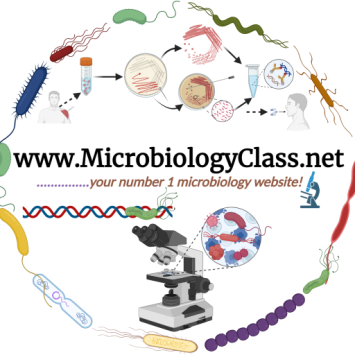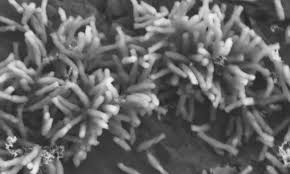Once a disease-causing microorganism (pathogen) gains entry into the body of a susceptible host, the pathogen will adhere or attach itself to specific receptors on the cell surfaces of the host. Upon successful invasion and binding, the microorganism will begin to release chemicals that will eventually attack the host cells.
The pathogen (agent) factors includes all disease causing microorganisms that invade and colonize the susceptible host and release within them many variety of virulent factors that eventually cause the host to become sick and even bed-ridden in some cases depending on the severity of the infection/disease.
These microorganisms release toxins and virulent factors that attack and damage the tissues and cells of the host including the host’s immune system (in some cases e.g. HIV infection) that is supposed to stop the external aggression of the pathogens. These pathogens including other chemical and physical factors are normally necessary in sufficient amount in order to initiate a disease or infection state in the susceptible host.
Pathogen factors influence the chances for the manifestation of a disease in an individual. Pathogen factors that influence a disease include:
- Pathogens e.g. bacteria, viruses, protozoa, and fungi.
- Chemical factors e.g. mutagens
- Physical factors e.g. ultraviolet (UV) radiation
SUSCEPTIBLE HOST FACTORS THAT INFLUENCE A DISEASE
Susceptible host factors are those characteristics of an individual that predisposes him or her to the contracting or acquisition or development of a disease. These factors are usually inherent in the susceptible host and, they determine the susceptibility or exposure of a person to a given infection within a defined population. Some susceptible host factors that influence an individual’s susceptibility to a given infection include:
- Personal traits e.g. race, skin colour, age, sex, immunologic status, genetic make-up.
- Personal habits and lifestyle e.g. drinking, smoking, eating habits, sexual practices.
- Socio-economic factors e.g. occupation, nutrition, place of living, place of work.
References
Aschengrau A and Seage G.R (2013). Essentials of Epidemiology in Public Health. Third edition. Jones and Bartleh Learning,
Aschengrau, A., & G. R. Seage III. (2009). Essentials of Epidemiology in Public Health. Boston: Jones and Bartlett Publishers.
Bonita R., Beaglehole R., Kjellström T (2006). Basic epidemiology. 2nd edition. World Health Organization. Pp. 1-226.
Brooks G.F., Butel J.S and Morse S.A (2004). Medical Microbiology, 23rd edition. McGraw Hill Publishers. USA.
Castillo-Salgado C (2010). Trends and directions of global public health surveillance. Epidemiol Rev, 32:93–109.
Centers for Disease Control and National Institutes of Health (1999). Biosafety in Microbiological and Biomedical Laboratories, 4th edn, Washington DC: CDC.
Gordis L (2013). Epidemiology. Fifth edition. Saunders Publishers, USA.
Guillemin J (2006). Scientists and the history of biological weapons. European Molecular Biology Organization (EMBO) Reports, Vol 7, Special Issue: S45-S49.
Halliday JE, Meredith AL, Knobel DL, Shaw DJ, Bronsvoort BMC, Cleaveland S (2007). A framework for evaluating animals as sentinels for infectious disease surveillance. J R Soc Interface, 4:973–984.
Lucas A.O and Gilles H.M (2003). Short Textbook of Public Health Medicine for the tropics. Fourth edition. Hodder Arnold Publication, UK.
MacMahon B., Trichopoulos D (1996). Epidemiology Principles and Methods. 2nd ed. Boston, MA: Little, Brown and Company. USA.
Nelson K.E and Williams C (2013). Infectious Disease Epidemiology: Theory and Practice. Third edition. Jones and Bartleh Learning.
Porta M (2008). A dictionary of epidemiology. 5th edition. New York: Oxford University Press.
Rothman K.J and Greenland S (1998). Modern epidemiology, 2nd edition. Philadelphia: Lippincott-Raven.
Rothman K.J, Greenland S and Lash T.L (2011). Modern Epidemiology. Third edition. Lippincott Williams and Wilkins, Philadelphia, PA, USA.
Discover more from #1 Microbiology Resource Hub
Subscribe to get the latest posts to your email.



